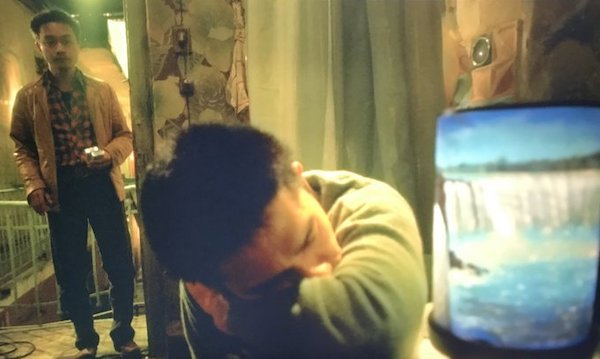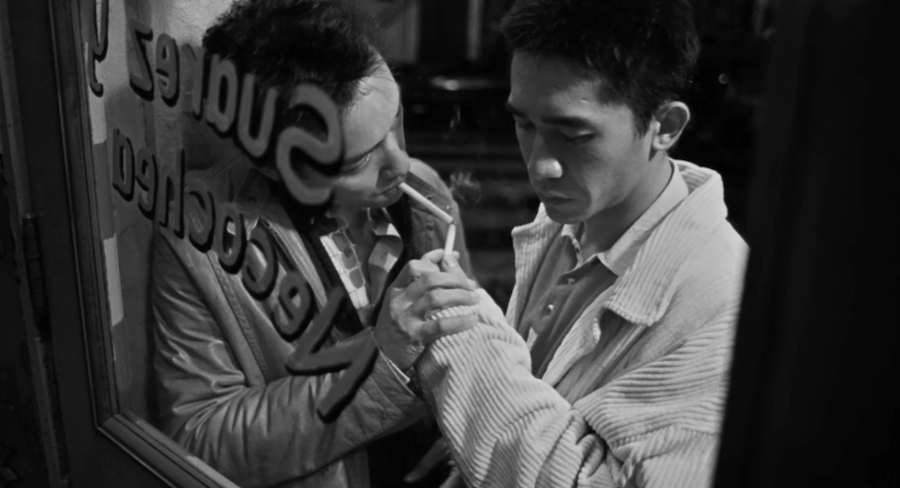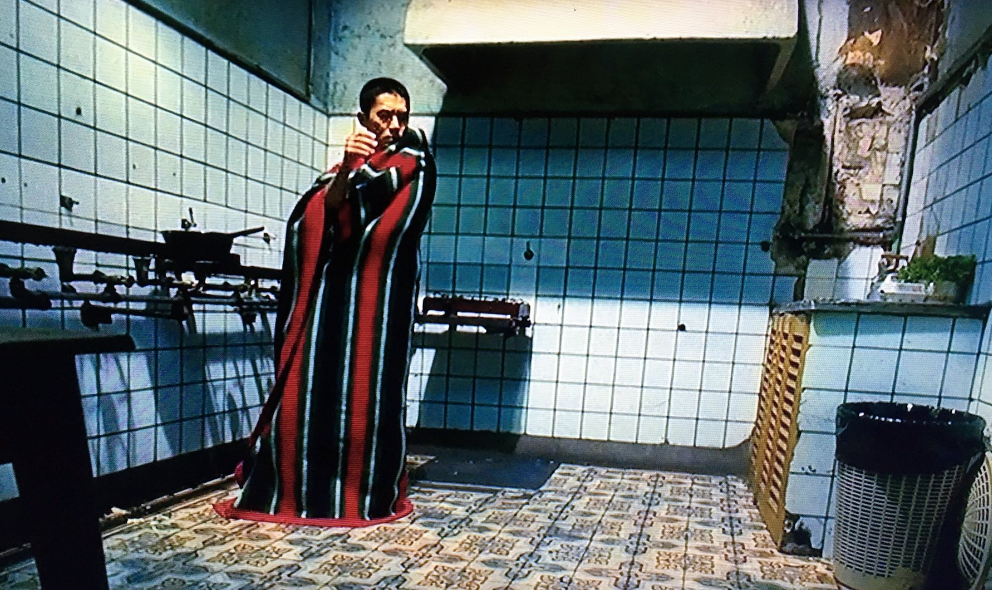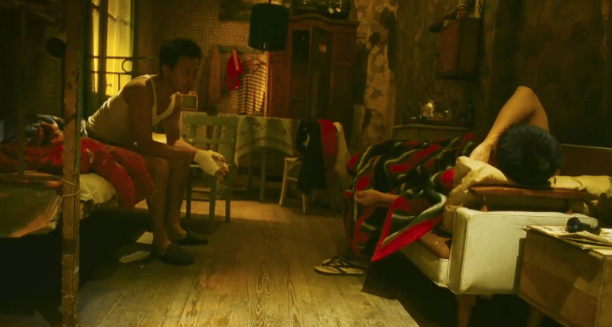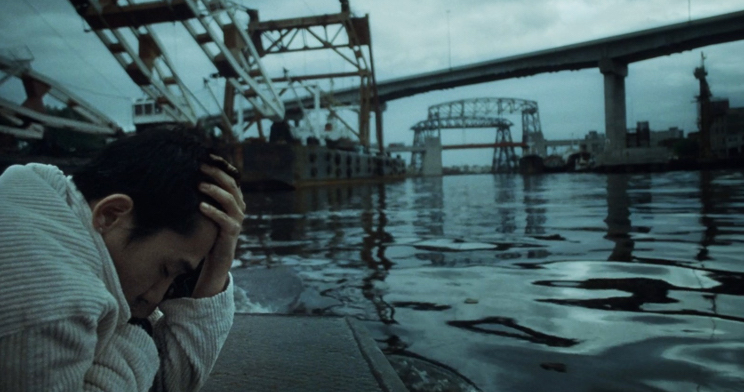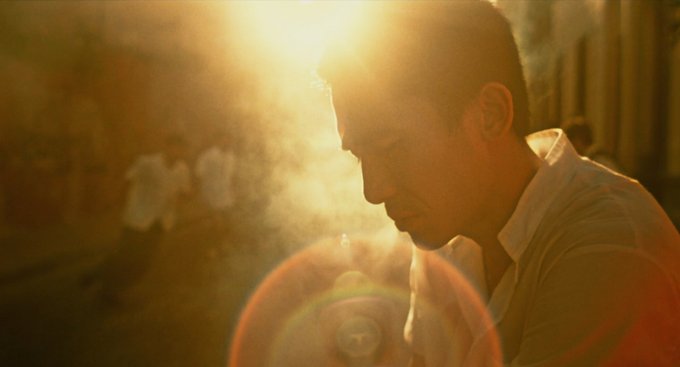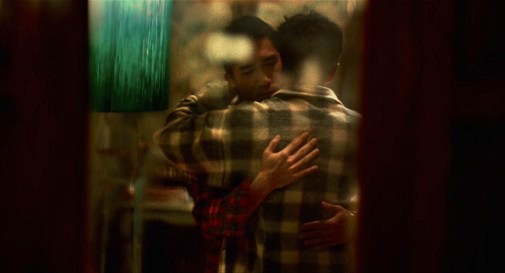by Nathaniel R
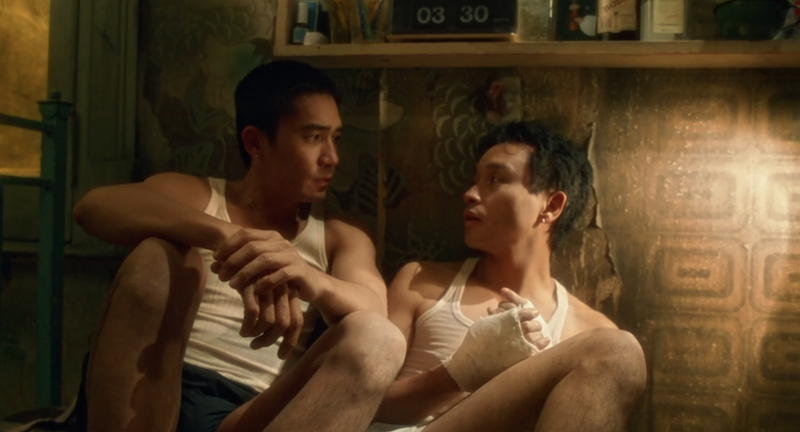
I first saw Wong Kar Wai's Happy Together at an arthouse cinema in Utah where I went to college. Though enthralled by its saturated colors and amazing performances, it left me very depressed. I had only been out for a couple of years, was wildly inexperienced with relationships, and chafed a bit at "sad gays" in the movies. Mostly because they were the only kind of cinematic gays regularly on offer back then. Nevertheless I devoured the "New Queer Cinema" of the 1990s wherever I could find it (i.e. arthouse theaters or Blockbuster rentals). And this particular movie lingered. I thought about it often. Seeing it again in 2022, twenty-five years after its Cannes premiere, it felt brand new. It wasn't... but 25 years of life experience later, it was. It wasn't devoted to gay misery as I'd remembered but merely a fascinating emotionally precise account of a particular romance. Not that the title isn't wildly ironic.
"Starting over means different things to him," is one of the saddest lines ever spoken in a movie and it hits early...
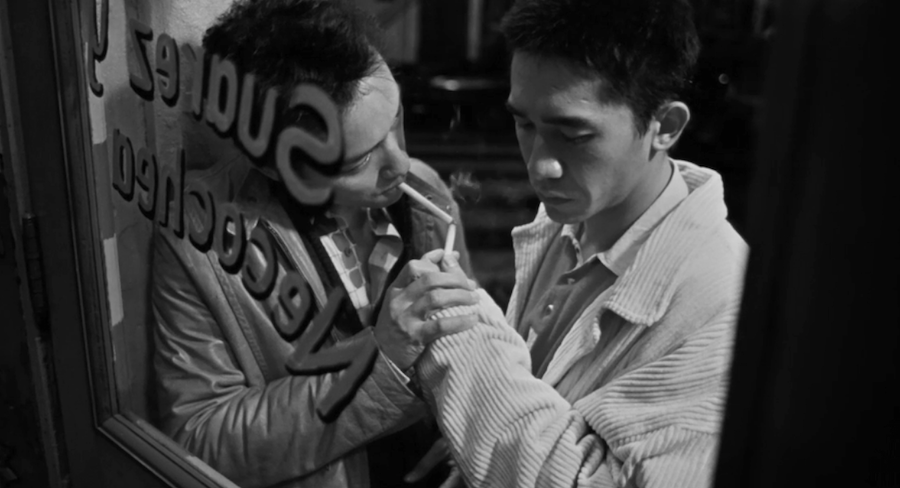 Bronze medal. The body language and physical acting in this scene -- they way they do and don't look at each other -- is nothing short of genius.
Bronze medal. The body language and physical acting in this scene -- they way they do and don't look at each other -- is nothing short of genius.
The movie's first act is mostly in black and white (though Christopher Doyle's genius cinematography comes fully to life with his extraordinary facility with color). In the first 22 minutes Lai Yiu-Fai (Tony Leung) narrates his most recent breakup with Ho Po-wing (the late great Leslie Cheung). He's fully aware that this breakup won't last and oddly is resigned to getting back together even before he's asked. As soon as Ho Po-wing has suggested they 'start over,' the movie shifts brilliantly to intoxicating color. For the rest of the ecomonical but gloriously full movie (so much character and feeling in 96 minutes) Wong Kar Wai and his actors chart the very last "on and off" in this painfully "off and on again" toxic relationship.
Wong Kar-Wai's visual strategies are rich and varied, and paired with the amazing performances from two of his earliest muses, they get at ineffable truths about unhappy couples. One of the techniques he uses frequently is the camera pulling away from one character to another with the focus shifting. Here is an example from the films first act. Fai is working as a doorman at a bar and Po-wing keeps showing up there to flaunt his new White sugar daddies and anger his ex. In this shot Po-wing drives away from a dazed Fai who is watching him (no words are exchanged) and noticeably does not turn to see his sad ex's reaction until the man is totally swallowed up, out of focus against blurry streetlights.
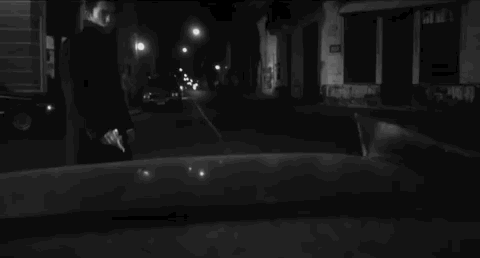
Here's one with a similar if less emphatic camera movement, which also leaves Fai behind but the new focus is a kitschy waterfall lamp that the characters are always looking at. It's one of those visual metaphors that is perfect precisely because of its thundering obviousness. Tourist merchandise is not subtle and neither is this constant reminder that this couple just can't get it together and make it work; they are never going to visit that waterfall together.
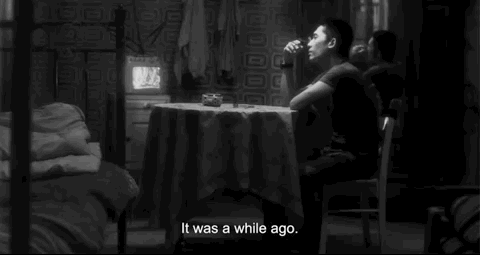
Both shots sting with the disconnect between the men, once physically and once spiritually.
The most ravishing repeated technique in the color portion of the movie is more mysterious but also non-verbal. The next two shots absolutely vibrate with feeling and motion.
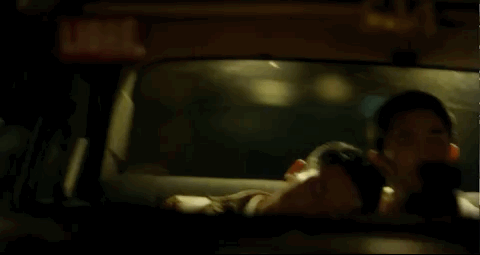
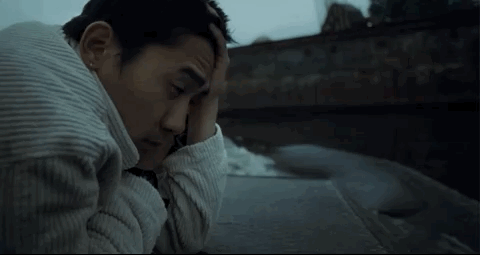 gold medal - nathaniel's choice for best shot
gold medal - nathaniel's choice for best shot
The emotional wallop is in their circular nature. The taxi ride above, which coincides with getting back together -- "let's start again" -- reads almost like a Merry-Go-Round with its swirling lights. Fai is always in cars or buses or, as in the shot above, a boat, but he's never actually getting anywhere. He's stuck in Argentina and for all his physical and verbal objections, paralyzed by this romance.
The shot directly above, which is longer in context and ravishingly moving is my choice for Best Shot. The moment is kind of free floating (we're given no explanation or where he is going or why he is on a boat) and could theoretically have been dropped anywhere in the movie, since Fai keeps repeating himself, but it's perfect exactly where it is. It's ineffably sad and almost elementally exhausted.
Even the one solitary glimpse we get of the couple looking genuinely happy, dancing in the kitchen -- the only shot in the film where they're both smiling -- the doomed couple is moving in circles.
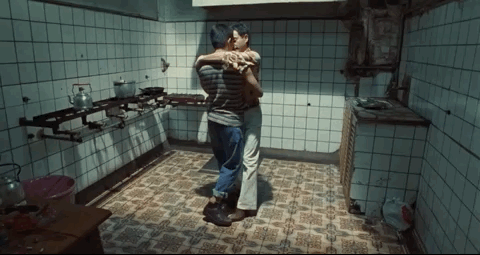
How can this man get unstuck and break the cycle? How can he find future happiness when he's continously thinking of the broken dreams?
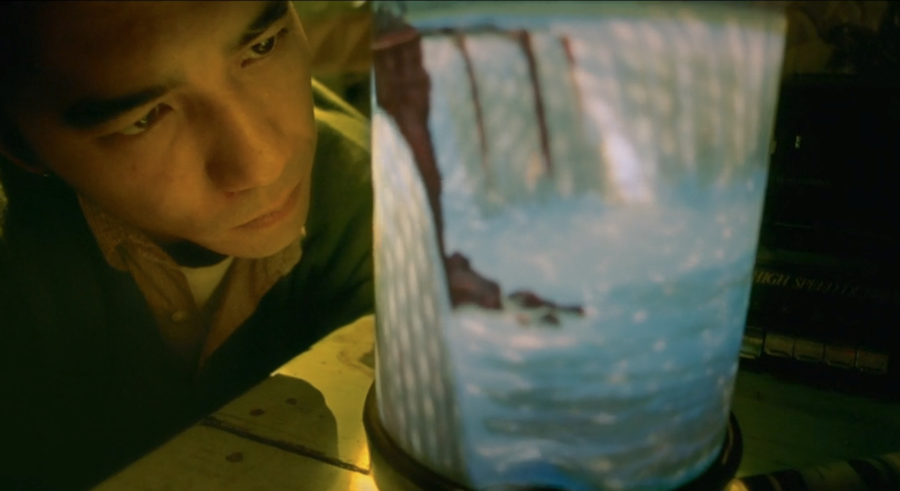 silver medal choice - best shot
silver medal choice - best shot
Let's just say I was triggered in ways both painful and cathartic and happy. At the risk of sharing too much, I watched this masterful film just days after receiving terribly sad news about an ex with whom I had had a very long relationship. All relationships are different and no movie will ever be an exact approximation of your own experience, blissful or miserable or anywhere inbetween. But watching Happy Together after real life heartbreak and experience is a shock. It conjures real truth and then illuminates it from within; that glow isn't just the color palette or the breathtaking cinematography. You can love someone... and they can love you back... and it can still prove an unhappy union. You can get stuck in patterns you'd never imagine for yourself. And even your own memories can be disorienting. One melancholy masterstroke is the way Fai remembers a scene we witnessed as miserable and describes it as a time they were happiest. Are the memories from our failed relationships distorted to ease the pain or do they merely hold contradictory truths?
But you can become unstuck, as Fai does, returning to Hong Kong his heart finally open to something new. The past is always a part of us but it isn't the end of the story.
On the first date with my boyfriend of almost two years now (time flies!) when he learned how movie obsessed I was, he mentioned that he loved Wong Kar-Wai movies. The first gift I gave him, about a year ago, was Criterion's Wong Kar Wai box set. This is the first time we'd watched one together. He asked if I was doing okay, a half hour into the movie, knowing that I'd been reeling from the news and the movie was obviously getting to me. The truth is that the movie hit me like it never had before. It also picked me back up as only great cathartic art can.

Next up: EX-MACHINA (2014) on Tuesday May 24th. Pick a shot and join us!
MORE VISUAL CHOICES FROM "HAPPY TOGETHER" FROM THE BEST SHOT CLUB
Click on the image to read why they chose it!
